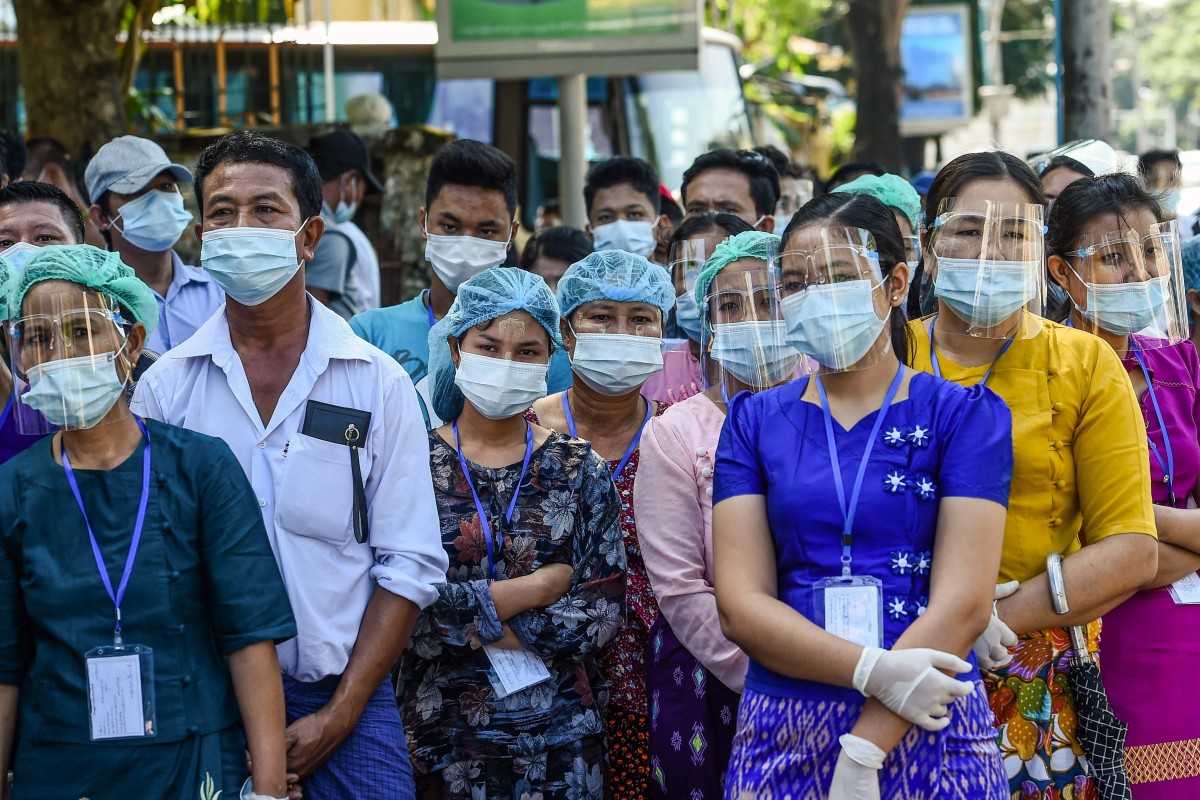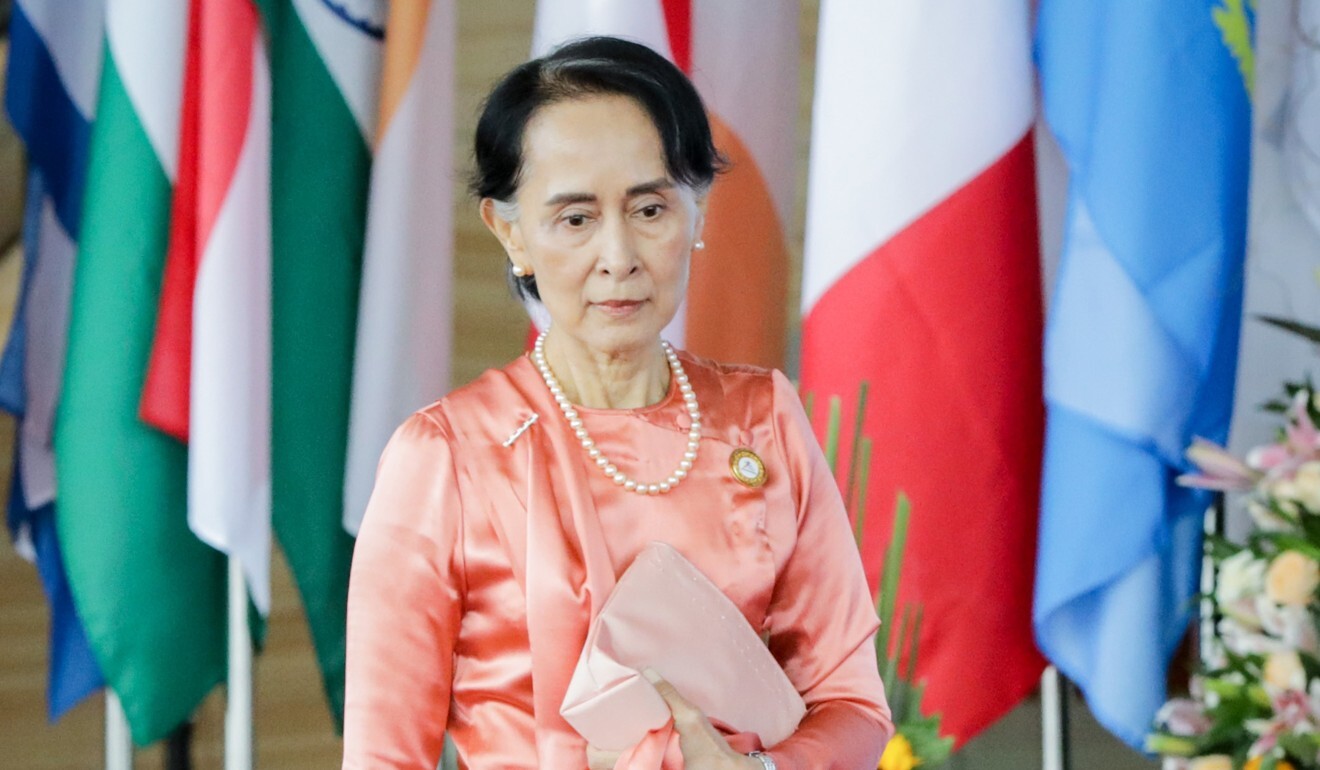
Vote counting started in Myanmar as polls closed on Sunday in an election that is expected to return to power the government of Aung San Suu Kyi, who remains a hero at home in spite of a reputation abroad shattered by the Rohingya crisis.
The election is just the second since the Southeast Asian nation emerged from nearly half a century of junta rule in 2011.
Five years ago, Suu Kyi’s National League for Democracy (NLD) won a landslide victory but was forced by the constitution into an uneasy power-sharing agreement with the still-mighty military.
This time, the civilian leader – in a bid to maintain an absolute majority – has implored citizens to overcome their coronavirus fears to turn out and cast their ballots.
Millions turned out early to line up outside polling stations before the sun had even risen, while others waited for hours in the heat to enter temples, shopping centres and offices to cast their ballots.
In Mandalay – Myanmar’s second-largest city and a hotspot for infections – people crowded into a polling station outside the city’s ancient palace.
“I have my concerns” about the lack of social distancing, said schoolteacher Hnin Wut Yee, 23. “We’re all watching each other with suspicion.”
Khin Nyo, 65, was one of the last to vote in a Yangon polling station that stayed open especially for the stragglers.
“I waited until others had voted as I didn’t want to vote in the rush,” she said.
Voters across the country wore compulsory face masks at polling stations, but social distancing rules were not followed everywhere with crowds bunched together in some lines.
Coronavirus cases have spiralled upwards in recent months, sending swathes of the country into lockdown and largely forcing campaigns online, where hate speech between rival factions has flourished.
‘Shoot all you see’, Myanmar soldiers confess roles in massacre of Rohingya Muslims
‘Shoot all you see’, Myanmar soldiers confess roles in massacre of Rohingya Muslims
Suu Kyi refused to postpone the polls, however – a decision that could see “serious public health ramifications”, warned the International Crisis Group watchdog.
UN chief Antonio Guterres on Friday called for a “peaceful, orderly and credible” election, although doubts about the vote’s credibility have already overshadowed the poll.
Virtually all the 600,000 Rohingya Muslims remaining in the country – half of whom are of voting age – are stripped of citizenship and rights, including their chance to vote.
“This is an apartheid election,” said rights group Burma Campaign UK, adding the polls were “less free and fair than the last”.
Restrictions across many other ethnic minority areas – ostensibly for security concerns – mean nearly two million voters were disenfranchised from an electorate of 37 million.

The election was widely expected to see the party of Aung San Suu Kyi win another five-year term. Photo: AFP
In Rakhine state, some people posted protest “can’t vote” selfies on Facebook with their little fingers coloured white – mimicking the purple ink to mark those who have cast their ballots.
The NLD-appointed election commission has also been lambasted for lacking transparency and bungling logistics, from voter lists to alleged discrimination against Muslim candidates.
Even army chief Min Aung Hlaing chided the “weakness and deficiencies” in the vote’s organisation and ominously warned the government to “be careful” – although he told reporters Sunday he would have to accept the results.
The military still wields huge power, retaining control of three key ministries and a quarter of all parliamentary seats.
The comments signalled a “new low point in civilian-military relations” even if a coup or other power grab remained very unlikely, said Yangon-based analyst Richard Horsey, who predicted a landslide for the NLD.
Suu Kyi’s defence of the country against genocide charges at the UN’s top court played well to the Bamar Buddhist majority, who widely view the Rohingya as illegal immigrants.
The persecuted community garnered little sympathy when brutal military operations in 2017 forced about 750,000 to flee from Rakhine state over the border to Bangladesh.
Myanmar is wracked by numerous other long-running conflicts in ethnic minority areas.
Many of these minorities, already disadvantaged by the electoral system, are now deprived of their vote.
This poses a “huge risk” of election or post-election violence, Horsey warned.
“There’s a lot of guns, there’s a lot of armed groups, there’s a lot of division.”
No comments:
Post a Comment